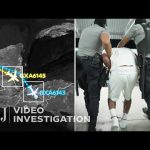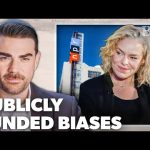The assassination of President John F. Kennedy on November 22, 1963, remains one of the most pivotal and haunting events in American history. Beyond the tragedy of losing a young, charismatic leader, the event shattered the nation’s sense of security and trust in its institutions. The chaos that followed—ranging from conspiracy theories to political realignments—continues to echo in today’s polarized political climate, serving as a stark reminder of democracy’s fragility and the enduring struggle to uphold truth and accountability.
In Dallas that fateful day, Lee Harvey Oswald fired the shots that ended Kennedy’s life, but his motives and potential connections remain a source of speculation decades later. The Warren Commission concluded that Oswald acted alone, yet public skepticism persists. This distrust in official narratives laid the groundwork for a culture of conspiracy that has only deepened over time. Today, similar patterns emerge as political discourse is riddled with accusations of “deep state” plots and election fraud, eroding faith in democratic institutions.
The assassination also marked a turning point in American politics, ushering in an era of heightened division and ideological shifts. Lyndon B. Johnson’s swift assumption of the presidency allowed him to push through landmark civil rights legislation, but it also highlighted the precarious nature of leadership transitions during national crises. The parallels to contemporary challenges are striking: moments of upheaval often test the resilience of democratic systems and the ability of leaders to unify a fractured nation.
A recent reenactment of Oswald’s infamous shot underscores how history continues to provoke questions rather than provide closure. While the mechanics of the event may be replicable, the deeper implications—why such violence occurs and how societies respond—remain unresolved. This exercise serves as a metaphor for the ongoing tension between uncovering historical truths and confronting uncomfortable realities about power, dissent, and governance.
As we reflect on JFK’s legacy, it becomes evident that his death was not just an end but a beginning—a catalyst for both progress and division. The lessons from 1963 resonate today: democracy demands vigilance, transparency, and an unwavering commitment to truth. In an age where misinformation thrives and political polarization deepens, remembering Kennedy’s vision for a united America is more crucial than ever. How we navigate these challenges will determine whether we honor his legacy or allow history to repeat itself.




